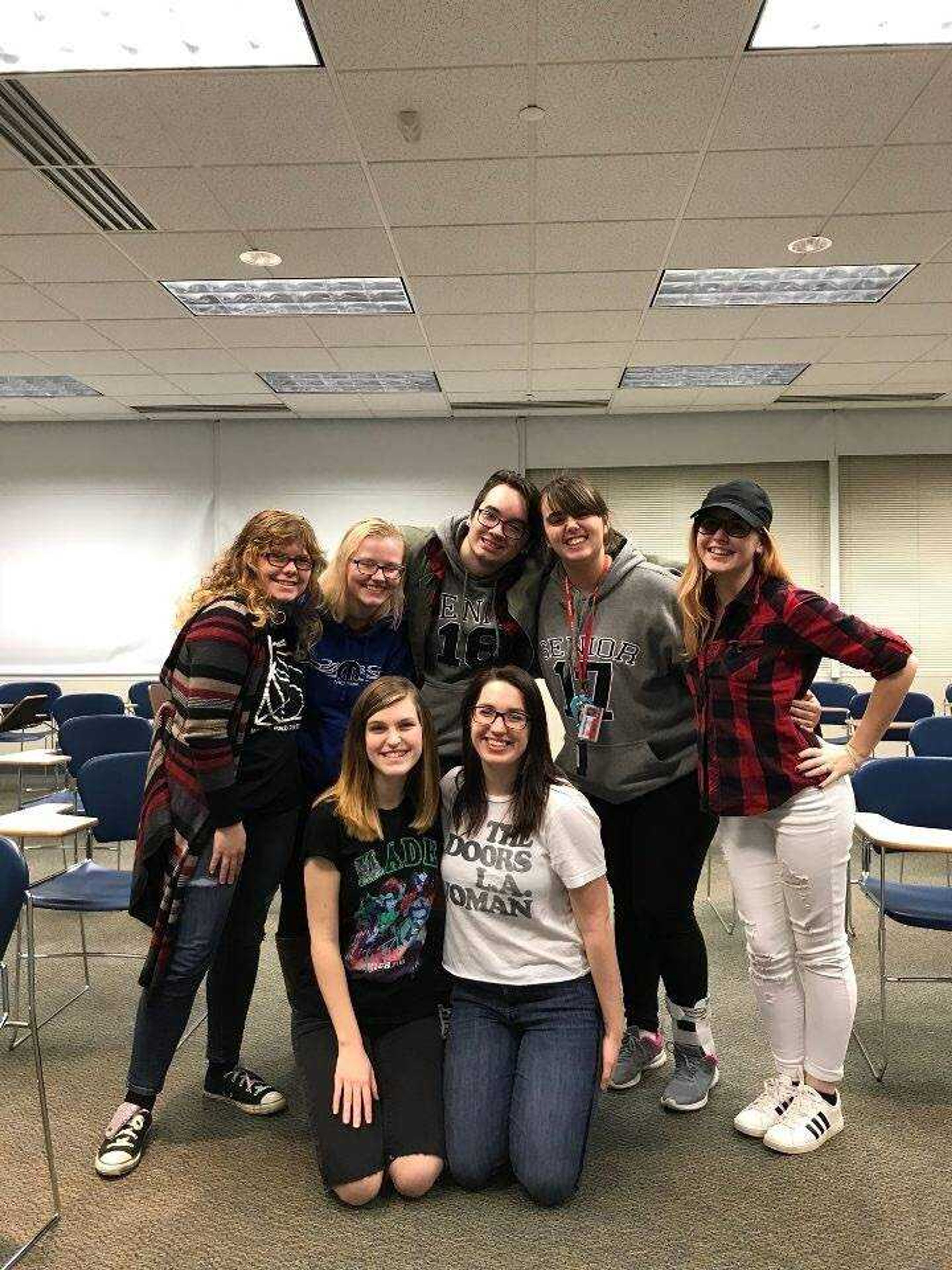Fans of South Korean pop music, or K-pop, have found a home at Southeast, thanks to the founding of the Hallyu Club. Members come together each week to share their opinions on the culture, music and fashion.
Club president Kayleigh Webb said the word Hallyu refers to the international wave of influence Korean culture has had, including a significant fan base in the United States. K-pop, with its rhythmic patterns, distinctive dances and grandiose visuals, has created a significant fan base in the United States.
Webb said she believes there are more fans of K-pop, beyond the club’s 10 active members. She said she often sees people with apparel referencing groups in the genre and “calls them out on it.”
One major theme, member Devin Dugger, said was “appreciation and not appropriation” of the Korea’s culture and music about which they are enthusiastic. Rather than adopting the distinctive features of Korean pop that make it unique, he said it is important to not try and copy their ideas and themes.
The fan base has become so extensive, Webb said, K-pop enthusiasts have their own lingo. One instance of this was what she called a fan’s “bias,” which referred to their favorite group or group member, or “Koreaboos,” who are people who attempt to appropriate K-pop culture. They said this sort of obsession and objectification of their culture is directly in contrast with what their organization and appreciation is about.
The group specifically grew out of Webb’s personal interest in K-pop since high school. Webb said she stumbled onto K-pop through YouTube, like many fans do originally. Webb, a junior and multimedia journalism major, is originally from Fredericktown, Missouri and said she has been a fan of K-pop for four years. After meeting other fans like Dugger at the university, and drawing interest from other students like Erica Maddox, she eventually wrote a constitution and created the organization, which has been active since Oct. 14.
Webb and Dugger credit the popularity of the unique genre to the “consistency” of the music. With producers creating a more formulaic and contained kind of music, artists create something especially desired by their audience. K-pop groups will often release several albums a year, making them very prolific and engaged with their listeners.
Member Danielle Gillis said she thought the visuals and dance performances were an added aspect which drew fans like her and others further into the music. While the music is good on its own, she said, the videos and acts add to the magnetism.
Gillis said she had gone to a K-pop concert in the past several years with friends and fellow club member Heaven Ketcherside, and it had been difficult to purchase tickets because of the popularity and the quick sale of seats.
The group seems to have embraced a common sentiment: American pop music fails to capture what the Korean music is able to convey. Despite this, they said, American music is undergoing an exchange with K-pop, with members citing cases of Bruno Mars collaborating with South Korean artist Taemin.
Very popular groups in K-pop include BTS, Black Pink and Red Velvet. The group hosted a 2017 award show of their own in honor of distinctive roles, such as “Best Dance” or “Best Vocals.”
Webb said the immersion in K-pop does not necessarily lead to learning the language. While fans may learn key words and phrases, it does not mean avid K-pop listening leads to bilingualism.
“Most people have this question,” she said. “‘How do you understand them?’ Or, ‘how do you like it if it’s not in English?’ And my spiel on that is, ‘Can you understand a trumpet?’ No, but it sounds good.”
Although there is an exchange of ideas with American music, Webb said she did not want to see the day when K-pop became mainstream and then a fad.
“The last thing I want is for K-pop to be another fidget spinner,” Webb said. She said the changes in American music could quickly outmode the aspects and qualities of K-pop she enjoys, with that sort of popularity belittling it.
Club members regularly present on their favorite groups and share their feelings and appreciation. Other activities proposed in the group include learning dances used by different K-pop groups, which is a large part of the genre.
For those interested, the club meets every Tuesday at 7 p.m. at Dempster Hall, Room 128. More information about the club can be found on Facebook.






